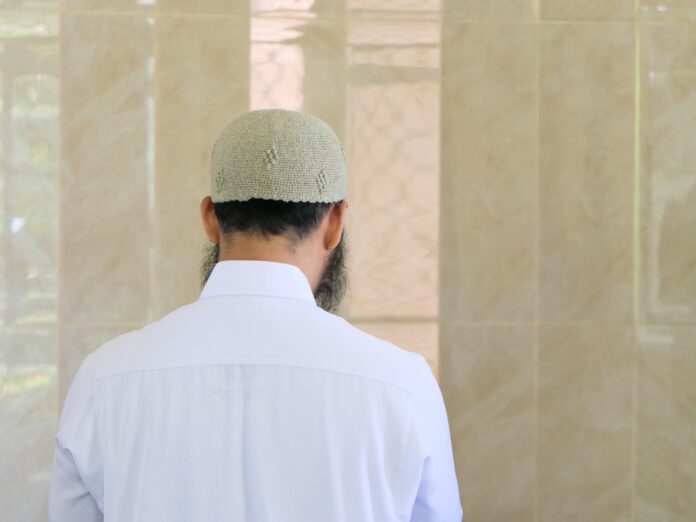The main concern for Muslim expats in the UAE is whether Sharia Law enables them to make a Will and transfer their properties and money according to their preferences? In the United Arab Emirates, a Muslim Will is an essential document in wealth management. The manner Muslims in the UAE share their inheritance is determined by the number of living heirs. This article will discuss the basic requirements which need to be followed while making Will under Sharia Law.
Law governing Muslim Will in the UAE
The Muslim Will in the UAE is governed by the Sharia Law. The provisions relating to the Muslim Will are provided under Federal Law No. 28 on Personal Law.
What is a Will or Testament?

Will is also termed as Testament in legal terms. According to Article 240 of Personal Status Law, “A testament is a legal document that directs the succession following the testator’s death,”
Essential Elements of a Valid Will
According to Article 245 of Federal Law No. 28 on Personal Law, the essential elements of a will are:
1. The wording of the Testator (intention to bequeath the Property),
2. The Testator (who make a Will),
3. The legatee (an individual who receives a portion of a testator’s estate) and
4. The bequeathed property (Property which is the subject matter of Will).
Essentials of a Valid Will
1. A valid will must be written by someone (Testator) of legal age, at least 21 years old.
2. A Will’s beneficiary must be alive at the time of the Testator’s death.
3. The Testator’s bequeathed asset(s) must be his or her legal Property.
4. If the value of the asset(s) bequeathed under the Will exceeds one-third of the entire value of the Testator’s estate, the Will is not effective unless and until the Testator’s legal heirs consent to it.
What does Sharia Law say about Will?

The Sharia Law would apply to the disposition of your assets after your death if you were a Muslim. The following are the essential considerations to keep in mind if you decide to write your Muslim Will in the United Arab Emirates:
1 Distribution of Property
i. Bequeath Property up to one- Third: (Article 263 of Personal Law)
A testator may give up to one-third of his wealth to any relative(s) who is not a legal heir or can donate in charity or for another purpose under Sharia rules without any permission from the legal heirs.
ii. Bequeath More than one-third of assets: (Article 243 of Personal Law)
A Will may only bequeath more than one-third of the Testator’s assets with the specific permission of each of the Testator’s legal heirs, as this may result in their obtaining less than their legal claim to the estate. Because debts take precedence over the Will, the value of the one-third part is calculated when all debts relating to the estate are fulfilled.
iii. In case of no bequeath of One- third Property:
In the absence of any bequests of upto one-third of the estate, the whole estate shall be divided among the remaining relatives according to the Sharia’s established shares.
For example. If A wishes to transfer his half of the Property to his wife, he may only do so if the surviving heirs agree and provide their approval. The transfer of Property in the wife’s name is deemed invalid in the absence of such permission.
2. Guardianship of minor children
Sharia Law rules governing minor children’s guardianship make it clear that if the children’s father dies, the mother does not automatically have legal guardianship of her own children. Guardianship is usually given to the child’s father since he is accountable for the child’s financial, moral, and physical well-being.
Under Article 156 of the Personal Status Law, a woman’s custody of her children ends when a male child reaches the age of eleven and a female child reaches the age of thirteen unless the Court chooses to prolong this time in the child’s best interests.
Suppose the father of a child resident in the UAE dies. In that case, the closest male relative on the father’s side of the family is generally designated as the guardian of any infant offspring, according to Sharia law. The children’s mother would keep custody under certain restrictions, such as not remarrying. Suppose a woman dies in the United Arab Emirates. In that case, the husband becomes the guardian and custodian of any minor children. Without a registered will or special instructions to appoint intermediary guardians for young children, the local UAE authorities would need to act and look after minors until the Court approves an appropriate guardian.
Appointment of Executors by Will

The manager of the estate chosen by the Testator is the executor (Al-Wasi) of the Will. The executor is responsible for carrying out the Testator’s instructions following Islamic law and safeguarding the interests of the children and the estate. The executor’s authority should be indicated. The executor should be honest and trustworthy; the Testator may name more than one executor, male or female, and specify whether each executor can operate independently of the others (s).
Presence of Legatee
A legatee must exist at the time of the Testator’s death for a legacy to be legitimate. The legacy must be capable of being owned by the legatee. Under Sharia Law, any legacy made favouring any legal heir already entitled to a share is null and void unless other legal heirs agree. The legatee’s acceptance or rejection of a bequest is only significant after the Testator’s death, not before.
Death of Legatee before the Testator

Under Sharia Law, if the legatee dies before the Will can take effect, the Will will lapse, and the Property bequeathed will stay with the Testator and, in the absence of any further disposition by him, will belong to his heirs. Under Article 255 of the Personal Status Law, if the beneficiary dies before expressing his or her approval or rejection of the Will, ownership to the bequeathed assets goes to the beneficiary’s heir(s).
The purpose of this article is to provide a general overview of the subject. attorneys in Dubai like HHS Lawyers and Legal Consultants can assist you in drafting and registering your own Will.
A renowned legal service business in Dubai that provides will writing services, are experts in this subject and other areas of law.
Writing a will may be a challenging process, which is why experts with over 30 years of legal expertise, can assure you that they can provide a high-quality service to draft a legal will.








